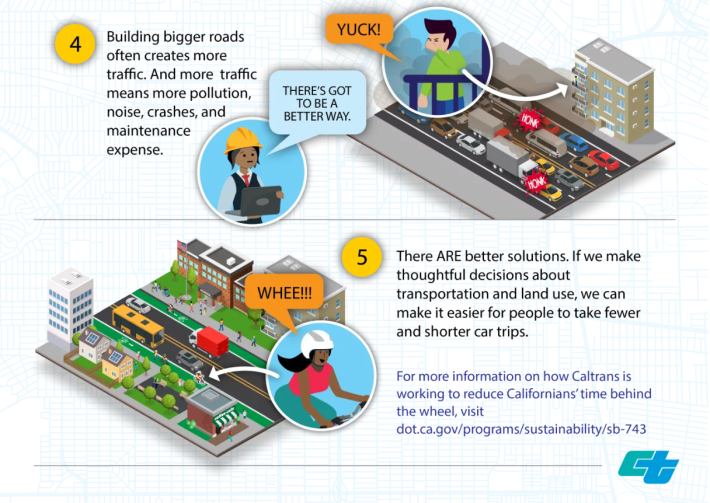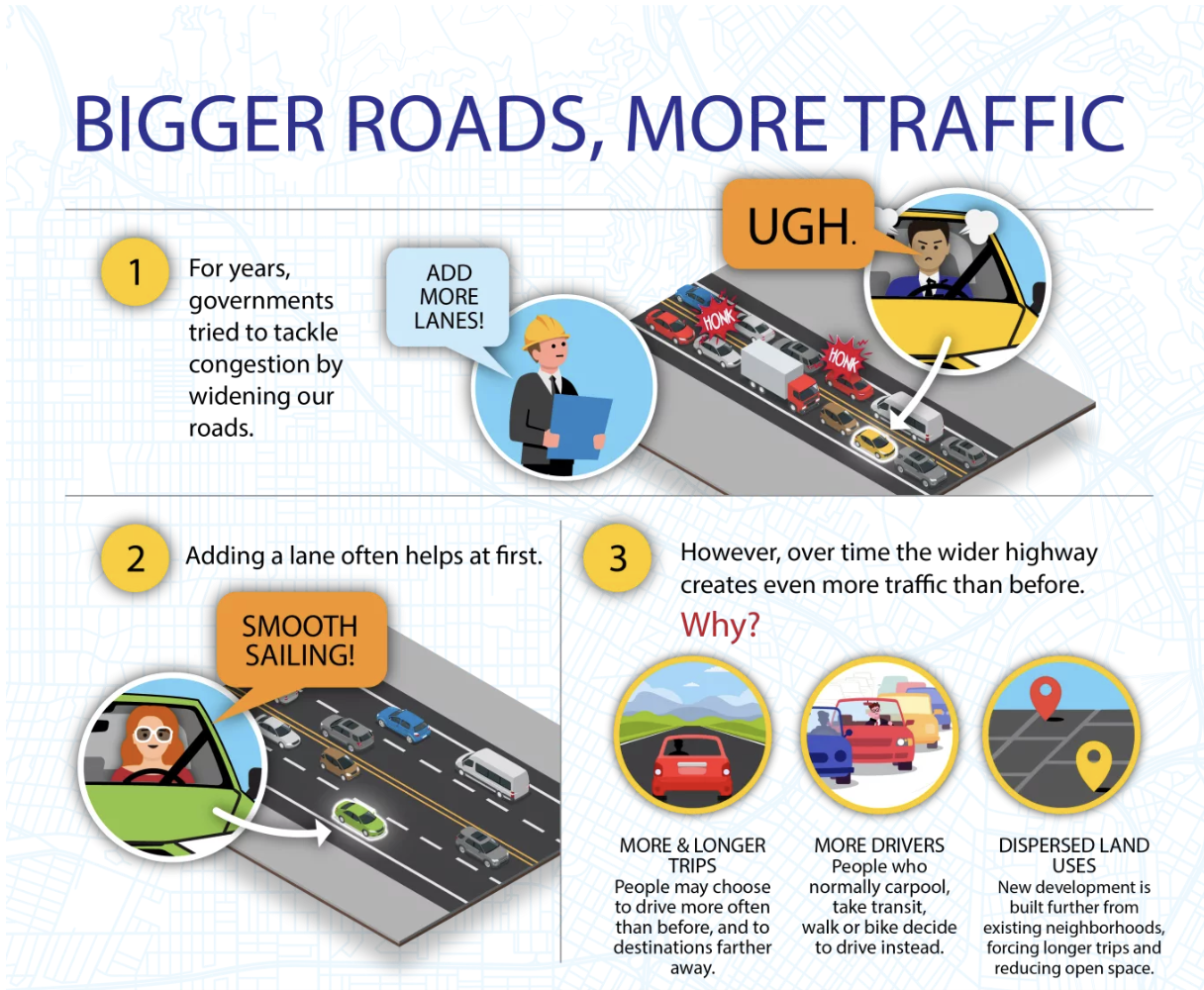
Update: At the last minute, the CTC moved this item off its agenda for this week's meeting, and instead will take it up at its May meeting.
The California Transportation Commission (CTC) is set to discuss - and is likely to approve - a request from Caltrans for advance funding on a controversial highway widening project near Sacramento at their meeting this week. Caltrans says it needs the funding now in order to keep $86 million in federal infrastructure funding that it has for the project.
The funding request is for an advance of $105 million from the Trade Corridor Enhancement Program (TCEP), a competitive program that is not expected to adopt its project list until June of 2025. Part of the requested amount - $63 million - would come from regional TCEP funds. That is just under half of the total regional program, which means the request is compliant with program rules about advancing funding - but only just. It also means that, if this funding is approved, there will be a lot less funding available for other projects that have to compete for TCEP funds.
In the past, Caltrans has rated this project very low on its priority list for the region. According to the CTC, it will widen Highway 80 between Davis and Sacramento by adding toll lanes. The project's TCEP application claims that it will "improve overall freight throughput and ease congestion," even though research has established that adding lanes, even toll lanes, induces more driving and at best has only a temporary effect on congestion.
The application also claims the project will include "a robust Vehicle Miles Traveled Mitigation Plan," but that plan would mitigate less than half of the induced travel. So, to start, "robust" is not the correct term to use here.
But there are so many other problems with this project, and with approving funding for it now. For one thing, the final Environmental Impact Report has not been released, so the CEQA process is still ongoing. This means the "preferred alternative" has not even been officially identified, although the TCEP application seems to focus on the one that adds toll lanes. It doesn't make a lot of sense to advance funding for a project that hasn't been decided upon - unless it has been, in which case that decision was made behind closed doors without public notice. If the CTC does approve funding this week, it would be much harder to change the project, thus cementing in what is not an official decision.
And since the draft EIR received detailed comments from numerous organizations pointing out its flaws, the unfinished process means those comments have not been responded to, as required by law. Also, it seems likely that at least some of those organizations are teeing up to litigate under CEQA.
That would put another crimp in Caltrans' rush to hold onto the federal funding, which requires the project to finish design and go out to bid by September 30, 2024. Litigation would delay that.
The EIR comments even included a letter from the California Air Resources Board, which pointed out - among many objections - that the draft EIR neglected to consider project alternatives that "could better meet the project’s objectives with less environmental impact." That includes the project alternative in the Regional Transportation Plan/Sustainable Communities Strategy. The Yolo County Transportation District specifically requested Caltrans include that alternative in its evaluation, but they were ignored.
CARB also points out serious problems with the way the EIR estimates induced travel. This is an ongoing issue with Caltrans highway widening projects, as highlighted dramatically at the last CTC meeting. Since car travel has been identified as one of the leading sources of greenhouse gas emissions, this is an important issue to resolve sooner than later - especially given the daily evidence that climate change is upon us.
Note that this is the same project that Caltrans Deputy Director of Planning and Modal Programs Jeanie Ward-Waller was fired for asking too many questions about. An ongoing investigation into that "personnel matter," and into the questions Ward-Waller raised about the way the project was broken up into pieces to comply with funding requirements, should be reason enough to take it slow. There has been no announcement of where that investigation is currently, and it has published no conclusions. However, CTC Executive Director Tanisha Taylor has already made it clear that the CTC does not intend to wait for the outcome of that investigation before proceeding with this project.
This is not the only highway widening project on the CTC's agenda this week. They will also consider whether or not they should consider funding a project on Highway 37 across the north part of the San Francisco Bay. That is being sold as a climate resiliency project, but will also end up with more lanes of traffic.
And several projects along Highway 99 are up for consideration as well. These are piecemeal bits of highway widening, some of which are caught up in litigation.
The highway builders either refuse to believe that their work is worsening the climate or they are cynically ignoring all the research that tells them so.






